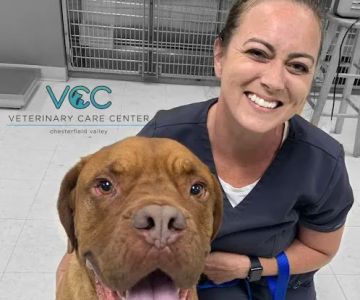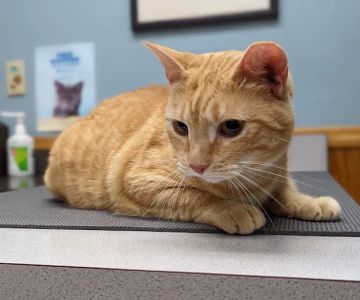Can You Be Board Certified in Orthopedics as a Veterinarian?
Veterinary orthopedics is a highly specialized field that involves the treatment of musculoskeletal disorders in animals. For veterinarians who are passionate about surgery and want to take their skills to the next level, becoming board certified in orthopedics is a prestigious goal. But how does one become a board-certified orthopedic veterinarian, and what does this certification process involve? This article will explore the journey to achieving certification, the benefits of specialization, and how it can affect your career in veterinary medicine.
1. What Does It Mean to Be Board Certified in Orthopedics?
To become board certified in orthopedics, a veterinarian must undergo a rigorous process that requires additional education, training, and experience beyond veterinary school. This certification is awarded by a recognized professional body, such as the American College of Veterinary Surgeons (ACVS), after a candidate demonstrates expertise in the field of veterinary orthopedics.
Board certification is essentially a formal acknowledgment that a veterinarian has reached an advanced level of skill and knowledge in orthopedic surgery and musculoskeletal care. The process is highly competitive, and those who achieve it are recognized as experts in their field. In addition to clinical skills, candidates must also pass written and oral exams that test their knowledge of orthopedic procedures and treatments.
2. The Path to Certification in Veterinary Orthopedics
Becoming board certified in veterinary orthopedics is no small feat. It involves several key steps, starting with completing a veterinary degree, followed by extensive training and experience in orthopedic surgery. Here's a breakdown of the path to certification:
- Step 1: Obtain a Veterinary Degree - The first step in becoming an orthopedic veterinarian is earning a Doctor of Veterinary Medicine (DVM) or equivalent degree. This typically requires four years of study at an accredited veterinary school.
- Step 2: Gain Experience in Veterinary Surgery - After completing veterinary school, aspiring orthopedic veterinarians need to gain substantial experience in general veterinary surgery. Many veterinarians spend a few years working in general practice before deciding to specialize.
- Step 3: Complete a Surgical Residency Program - The next step is to enter a residency program in veterinary surgery. This typically lasts 3-4 years and is specifically focused on orthopedic surgery. Residents work closely with experienced orthopedic surgeons to learn advanced techniques and gain hands-on experience.
- Step 4: Pass Certification Exams - After completing the residency, candidates must pass both written and oral exams administered by the American College of Veterinary Surgeons (ACVS) or another recognized certifying body. These exams test the candidate’s knowledge, clinical skills, and ability to make critical decisions in orthopedic surgery.
- Step 5: Maintain Certification - Once certified, orthopedic veterinarians must maintain their certification by completing continuing education requirements and staying updated on the latest advancements in the field.
3. Benefits of Becoming Board Certified in Orthopedics
Becoming board certified in orthopedics can significantly enhance a veterinarian's career. Here are some key benefits:
- Increased Credibility and Expertise: Board certification is a mark of excellence in the veterinary field. It signals to clients, employers, and colleagues that the veterinarian has achieved the highest level of expertise in orthopedic surgery.
- Greater Job Opportunities: Specialists in veterinary orthopedics are in high demand, particularly in referral practices and teaching hospitals. Many employers prefer or require board-certified specialists for advanced procedures and complex cases.
- Higher Earning Potential: Board-certified orthopedic veterinarians typically earn higher salaries than general practitioners. Specialized skills in high-demand areas such as orthopedic surgery can lead to lucrative career opportunities.
- Personal Satisfaction: For veterinarians who are passionate about musculoskeletal care, specializing in orthopedics provides the opportunity to make a significant impact in the lives of animals. The ability to perform complex surgeries and restore mobility in pets is incredibly rewarding.
4. Challenges of Pursuing Veterinary Orthopedic Certification
While the benefits of being a board-certified orthopedic veterinarian are significant, the path to certification is not without its challenges. Here are some hurdles that veterinarians may face during this journey:
- Intensive Education and Training: The process to become board certified in orthopedics is long and rigorous. It requires years of additional training and hands-on experience, which can be physically and emotionally demanding.
- High Competition: The certification process is highly competitive. Many aspiring orthopedic veterinarians vie for a limited number of residency spots, and only the top candidates are selected.
- Financial Considerations: The cost of veterinary education and residency programs can be significant. Many veterinarians also face student loan debt, making it essential to carefully consider the financial implications of pursuing this path.
5. The Demand for Orthopedic Veterinarians
Veterinary orthopedics is a specialized field with growing demand, especially in urban areas with large pet populations. As more people adopt pets and seek advanced care for their animals, the need for skilled orthopedic veterinarians has increased. Specializing in orthopedics allows veterinarians to work with high-value clients who are willing to pay for advanced surgical procedures to improve the quality of life for their pets.
As the pet industry continues to grow, there is also a rising awareness among pet owners about the importance of orthopedic care. This has created more opportunities for veterinarians to establish successful practices focusing on musculoskeletal issues.
6. Alternatives to Becoming Board Certified in Orthopedics
While becoming board certified in veterinary orthopedics is a prestigious achievement, it's not the only path for veterinarians interested in this specialty. Many veterinarians choose to pursue additional education and training in orthopedics without seeking board certification. This can involve attending workshops, completing online courses, or working alongside experienced orthopedic surgeons to gain practical knowledge and skills.
For those who are not interested in pursuing certification, there are still opportunities to work in the field of veterinary orthopedics, particularly in general practice settings where basic orthopedic procedures are performed regularly. However, board certification provides a competitive edge and can lead to higher-paying and more specialized positions.
Conclusion
Becoming board certified in orthopedic surgery as a veterinarian is a challenging yet highly rewarding career path. It requires years of education, hands-on experience, and a passion for helping animals in need. For those dedicated to advancing their careers and specializing in this high-demand field, board certification can open doors to exciting job opportunities and higher earning potential.











